
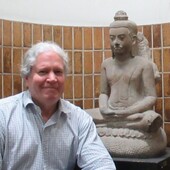
Ronald S. Green
Professor and Chair of the Department of Philosophy and Religious Studies, Coastal Carolina University
Less ![]()
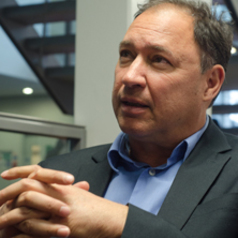
Ronen Palen
Professor's Palan's work lies at the intersection between international relations, political economy, political theory, sociology and human geography. He wrote a number of books and numerous articles, book chapters and encyclopaedia entries on the subject of Offshore and Tax havens, state theory and international political economic theory. His work has been translated to Chinese, simple and complex characters, Japanese, Korean, Spanish, French, Russian, Italian, Azeri and Czech.
Less ![]()
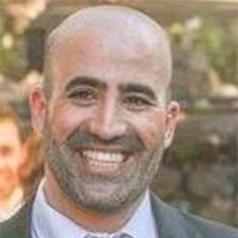
Roni Abusaad, PhD
Lecturer, San José State University
Roni Abusaad, PhD, Lecturer in Human Rights at San Jose State University.
Less ![]()

Ronita Bardhan
Associate Professor of Sustainability in the Built Environment, University of Cambridge
Dr Ronita Bardhan is an architectural engineer and urban studies educator, with a PhD in urban engineering. She believes that data-driven intelligence of built environments can effectively address sustainability goals and policies. Her research is in the niche sector of the sustainable built environment to inform health and energy decisions in the changing climate and low-income communities. Bardhan uses data-driven methods that couples architectural engineering, AI and machine learning with social sciences to provided built environment solutions for health in resources constraint societies. Her tractable research informs demand-side design solutions using digital tools which positively affects well-being, energy security, and gender equality while entailing fewer environmental risks. Bardhan works in Slum Rehabilitation (social) housing (in India, Indonesia, Ethiopia, South Africa and Brazil). Her impactful work has received traction from policymakers and has received wide coverage in the news media. Ronita is part of AI for Environmental Risk, Cambridge Public Health, Centre for Science and Policy, Cambridge Zero , Cambridge Global Challenges and Sustainability Leadership for Built Environment (IDBE). She is Director of MPhil in Architecture and Urban Studies (MAUS) and leads the Sustainable Design Group at the Martin Centre: Sustainable buildings and cities, Department of Architecture. Dr Bardhan is Director of Studies and Fellow in Architecture at Selwyn College in Cambridge. Bardhan Chairs the Equality Diversity Inclusivity Committee at the Department of Architecture and History of Arts and is strongly committed to and is an ardent advocate of the shared vision of equality, diversity, inclusion, and belonging in all spheres of her research and teaching. She believes that everyone benefits from strength in difference and that diversity is instrumental to success.
Less ![]()
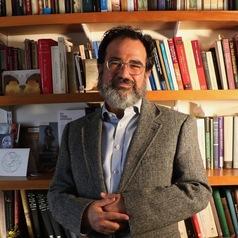

Roodabeh Dehghani
PhD candidate, L’Université d’Ottawa/University of Ottawa
I am currently a PhD candidate at the University of Ottawa, my thesis research is concerned with modes of governance of sexuality in contemporary Iran. My main research interests focus on female sexuality and its governance in the context of Iran over the past century especially after the mid 19th century.
Less ![]()
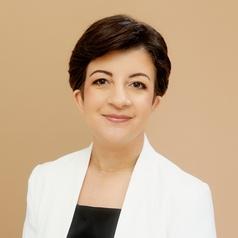
Roojin Habibi
Research Fellow & PhD Student, Global Strategy Lab, York University, Canada
Roojin Habibi is an international lawyer and a research fellow of the Global Strategy Lab (York University). As a law academic who bridges disciplines of international law, health law and human rights, her scholarly work examines the impact of transnational institutions, actors, and norms on global health equity and the realization of health as a human right. In 2022, Roojin was appointed to the WHO expert committee mandated to advise countries on proposed amendments to the 2005 International Health Regulations. She is among a five international law academics from around the world appointed to the committee.
Roojin has worked on health and human rights issues in government, non-governmental, and international organizations. She holds a Joseph-Armand Bombardier Doctoral Award for her doctoral research at Osgoode Hall Law School, York University, and has a law degree (J.D.) from the University of Ottawa's French Common Law program, a specialization in transnational law from the University of Geneva Faculty of Law, and a Master’s of Science in Global Health from McMaster University. She is a Barrister and Solicitor in Good Standing with the Law Society of Ontario and is fluent in English, French, and Farsi.
Less ![]()
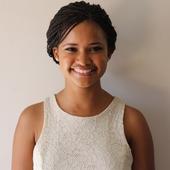

Rory Hills
PhD Candidate, Biochemistry, University of Oxford
I am a scientist who is passionate about interdisciplinary research that has the potential to benefit people’s lives. I received a BSc (Honours) in Biochemistry in my hometown at the University of Victoria in BC, Canada. While pursuing this degree, I helped establish the federally funded Substance Drug Checking Project which uses analytical chemistry to determine the composition of street drugs. This was part of an effort to mitigate the harms of the ongoing opioid overdose crisis. I also expressed and characterized novel proteins from the human gut microbiota that have potential applications in seaweed biofuel generation.
I am currently a Rhodes Scholar pursuing a DPhil in Biochemistry at the University of Oxford (St. John’s College) supervised by Mark Howarth and co-supervised by Alain Townsend. Since September 2022 I have also been a visiting student in the Department of Pharmacology at the University of Cambridge (Darwin College). My research focuses on using synthetic biology and protein engineering to develop new vaccine technologies that can provide effective protection against a broad range of pathogens. In this role, I have led the development of a vaccine candidate that elicits potent neutralization of SARS-CoV-2 and several evolutionarily related coronaviruses in pre-clinical models. I have also contributed to vaccine candidates against influenza, rhinovirus, mpox, and other poxviruses using a multivalent protein display system.
Less ![]()

Rory Waterman
Associate Professor of Creative Writing and Modern and Contemporary Literature, Nottingham Trent University
Less ![]()
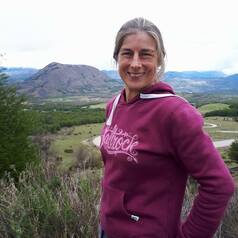
Ros Death
Lecturer in Physical Geography, University of Bristol
Ros Death is a biogeochemical modeller who focusses on understanding the role in which ocean biogeochemical cycles are key to understanding the link between climate, ice sheets and the marine environment. Alongside this research she conducts pedagogic research into understanding the relationship students have with deadlines.
Death is a lecturer at the School of Geographical Sciences, University of Bristol, since 2016. She completed her PhD in 2004 on investigating the impact of iceberg freshwater release and sediment contribution to the North Atlantic. In her research she uses models at different spatial and temporal scales, in combination with available datasets, to explore the complex processes that drive the interchange between atmospheric and marine carbon stores. In 2021, she was part of a hackathon where she was a co-leader of a theme on ‘The Biological Carbon Pump in CMIP6 models’.
Less ![]()
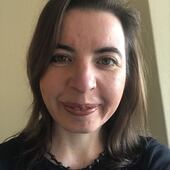
Rosa Busquets
Associate Professor, School of Life Sciences, Pharmacy and Chemistry, Kingston University
Less ![]()
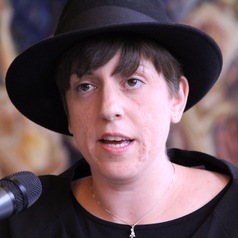
Rosa Freedman
Senior Lecturer (Law), University of Birmingham
Rosa Freedman joined Birmingham Law School in 2011 having previously taught Law at Queen Mary, University of London. Rosa has written articles on legal matters for national media and online blogs, and has provided research and expertise to a number of NGOs. Her first book, The United Nations Human Rights Council: an early assessment was published in March 2013 and her second book Failing to Protect: The UN and Politicisation of Human Rights was published in May 2014.
Rosa researches and writes on the United Nations and international human rights law. She is interested in the extent to which UN human rights bodies discharge their mandates and the intersection of international law and international. Rosa has a broader interest in the impact of politics, international relations, the media, and civil society both on the work and proceedings of international institutions and on states’ compliance with international human rights norms.
Less ![]()
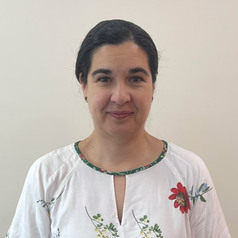
Rosa Fernandez Martin
Senior Lecturer in Economics and Finance, Keele University
Dr Rosa M. Fernandez Martin is an applied economist specialised in sustainability related topics, including renewable energies economics and policies, food security and food sustainability, education for sustainable development, or corporate social responsibility, among others. She has wide teaching and research experience in Economics, having worked at UNED (Spain), the University of Birmingham and the University of Chester, where she was Programme Leader in Economics and Deputy Head of Department in Social and Political Science. She joined Keele Business School in June 2023 from the University of Warwick, where she was Associate Professor in Global Sustainable Development in charge of distance learning provision.
She has published numerous articles and book chapters in her main areas of research expertise and has taught a wide range of modules in Economics both at undergraduate and graduate levels (including micro and macroeconomics, economic thought, international trade, public sector economics and development economics), with specialisation in Environmental Economics. She is associate editor of several international peer reviewed journals and regular reviewer for transdomain projects for the COST initiative of the European Commission.
Less ![]()

Rosa Illán Castillo
CNRS Postdoctoral Researcher, laboratoire Dynamique Du Langage (DDL-Lyon) / Investigadora Posdoctoral-Fundación Séneca, Lingüística Cognitiva, Universidad de Murcia
Rosa Illán es doctora en Lingüistica por la Universidad de Murcia (2024, cum laude, mención internacional). Actualmente es investigadora postdoctoral con un contrato del CNRS en el Laboratoire Dynamique du Langage (DDL) en Lyon, Francia. Sus líneas de investigación se centran en la metáfora conceptual, la integración conceptual, el tiempo, el movimiento y la creatividad en el lenguaje. Es miembro principal del Daedalus Lab (The Murcia Center for Cognition Communication and Creativity). En 2021 realizó una estancia de investigación en FAU Erlangen-Nürnberg (Alemania). Este mismo año recibió una beca Fulbright de investigación para llevar a cabo una estancia de un año en el Departamento de Ciencia Cognitiva de la Universidad de California, San Diego (UCSD), durante la que trabajó en el Embodied Cognition Lab. Es miembro colaborador del Red Hen Lab, consorcio especializado en el estudio de la comunicación multimodal, dirigido por Mark Turner (Case Western Reserve) y Francis Steen (UCLA), y junto al que participa como mentora en el programa Google Summer of Code. Sus investigaciones se han publicado en revistas y capítulos de libro de carácter nacional e internacional. Ha colaborado como ponente en el International Multimodal Communication Centre (IMCC) de la Universidad de Oxford. Actualmente, desarrolla su investigación en el marco del proyecto I+D+i EMOTIME: “Time and emotion: linguistic mechanisms for the emergence of emotional meanings in temporal expressions” (Universidad de Murcia) y del proyecto financiado por el CNRS COVALI: “Perceptive and motor constraints and linguistic variation” (DDL).
Less ![]()
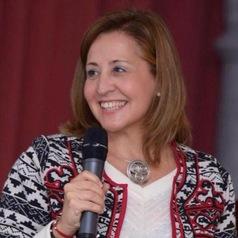
Rosa M. Rodríguez-Izquierdo
Profesora Titular Dpto. Educación y Psicología Social, Universidad Pablo de Olavide
Doctora en Educación (Universidad de Sevilla). Maestría en Enseñanza en la Educación Superior. Actualmente es profesora titular en la Universidad Pablo de Olavide (Sevilla, España). Ha trabajado anteriormente para la Universidad Autónoma (Madrid, España) y el Centro Cardenal Spínola (Adscrito a la Universidad de Sevilla). Ha sido profesora visitante como becaria Fullbright en Harvard Graduate School of Education (HGSE), en el Departamento de Sociología de la Universidad de Harvard, en Australia (Universidad de Sídney, Universidad de Melbourne y Universidad de Brisbane) y en varias universidades europeas y latinoamericanas. Es Fellow del Real Colegio Complutense (RCC) en Harvard desde 2005.
Su trabajo se ha centrado en la educación/ciudadanía intercultural/inclusiva, las actitudes de docentes hacia la diversidad cultural/lingüística, las prácticas culturalmente relevantes y la relación entre migraciones y educación. En innovación docente y didáctica en la educación superior ha estado particularmente atenta a la evolución del Espacio Europeo de Educación Superior (EEES) participando en proyectos de investigación que evalúan el impacto de las experiencias piloto y en los últimos años ha trabajo sobre el impacto del Aprendizaje Servicio como metodología para impulsar un modelo de universidad comprometida.
Sobre estos temas he publicado 50 artículos y 24 capítulos de libros en obras colectivas y un libro coordinado y he presentado más de 70 trabajos en congresos de carácter internacional y nacional.
Cuenta con tres sexenios de investigación evaluados por la CNEAI. Último en vigor del periodo 2011-2018.
Ha participado en cinco proyectos I+D+i y tres proyectos internacionales. En la actualidad es IP de dos de ellos:
- Promoting inclusion to combat early school leaving (PICELS) (2019-1-ES01-KA201-065362) financiado por la Comisión Europea a través del programa Erasmus+. (2019-2021)
- Breaking barriers and building bridges (B4). Strengthening active citizenship competences and civic engagement skills among young adults with intellectual disabilities (020-1-ES01-KA204-081996) financiado por la Comisión Europea a través del programa Erasmus+ (2020-2022).
Entre las últimas publicaciones caben destacar las siguientes:
- Rodríguez-Izquierdo, R. M. (2020) (en prensa). Monolingual ideologies of Andalusian teachers in the multilingual schools’ context. International Journal of Bilingual Education and Bilingualism.
- Rodríguez-Izquierdo, R. M., González-Falcón, I., & Goenechea Permisán, C. (2020). Teacher beliefs and approaches to linguistic diversity. Spanish as a second language in the inclusion of immigrant students. Teaching and Teacher Education, 90. https://doi.org/10.1016/j.tate.2020.103035
- González-Faraco, J. C.; González-Falcón, I. y Rodríguez-Izquierdo, R. M. (2020). Políticas inter-culturales en la escuela: significados, disonancias y paradojas/Inter-cultural policies at school: meanings, dissonances and paradoxes. Revista de Educación, 387. Enero-Marzo, 67-88. DOI: 10.4438/1988-592X-RE-2020-387-438. http://www.educacionyfp.gob.es/dam/jcr:b9b4400e-ea7c-407c-875a-0f2d52169873/04gonzalezesp-ingl.pdf
- Rodríguez-Izquierdo, R. M. (2020). Service learning and academic commitment in Higher Education. Revista de Psicodidáctica, 25(1), 45-51. https://doi.org/10.1016/j.psicod.2019.09.001
Less ![]()

Rosalie Hocking
Swinburne University of Technology
I am an Associate Professor of Chemistry. I am expert in materials characterisation. My work spans understanding electrolyser systems for commodity chemical manufacture through to the development of cheap accessible sensors for building materials.
Less ![]()

Rosalind Shorrocks
Senior Lecturer in Politics, University of Manchester
I am a Senior Lecturer in Politics at the University of Manchester. My research interests are in electoral politics, political behaviour, and social attitudes in Britain and comparative perspective. I am particularly interested in the effects of gender, generation, and socialisation on vote choice and public opinion. Previous research has focused on generational change in gender gaps in Britain, change in attitudes towards gender equality, and attitudes towards the EU.
Less ![]()
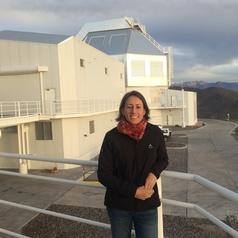
Rosalind Skelton
SALT Astronomer and Head of Research at the South African Astronomical Observatory, National Research Foundation
I am based at the South African Astronomical Observatory (SAAO), where I am head of research and a support astronomer for the Southern African Large Telescope (SALT). I completed my PhD within the field of galaxy formation and evolution at the Max Planck Institute for Astronomy (University of Heidelberg) in 2010 and then took up a postdoctoral research position at Yale University. Upon my return to South Africa in 2013 I held a Professional Development Programme postdoctoral fellowship at the SAAO, and then became a member of the SALT team in 2016. I have close links with the University of Cape Town, where I lecture for the National Astrophysics and Space Science Programme and supervise students at all levels. My group investigates galaxy formation processes and interactions in different environments, from the formation of low surface brightness galaxies to the most massive galaxies and large-scale structures in the universe.
Less ![]()
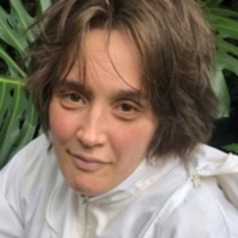
Rosalyn Gloag
School of Life and Environmental Sciences Research Fellow, University of Sydney
I am an Australian Research Council Discovery Early Career Research Award Fellow and University of Sydney Robinson Fellow. My research investigates the evolution, behaviour and ecology of bees, with a particular focus on native stingless bees and honey bees.
Less ![]()

Rosana Silveira Reis
Professor of human resource management & organization behaviour, ISG International Business School
Rosana SILVEIRA REIS is associate professor at ISG International Business School. She has been living in Europe since July 2004. She spent six years in Italy, where she defended her Ph.D. in management at the University of Bologna, and the last thirteen years in France where she is currently Associate Professor at ISG International Business School in Paris. She has 35 years of experience in Human Resources, 15 of them as a manager in large companies in Brazil.
Since 2000 she has been teaching in undergraduates, Master and MBA Programs, the disciplines: Human Resource Management, International HRM, Organization Behaviour, Management of Innovation, Cross Cultural Management, and Doing Business in America. In her research, she is working in the cross-border of Organization Behaviour, Innovation, and Entrepreneurship. Her focus is on Ecosystems of Innovation, Migrant Entrepreneurs, Platform workers, Culture & Inclusion, Creativity in Global Teams, and Leadership.
She was elected Country Representative to represent France in the EURAM Council of Country Representatives for the period 2021 to 2024. She is also French Coordinator at MIG.EN.CUBE Project – International Research Consortium sponsored by Erasmus+.
Less ![]()

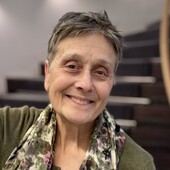
Rosaria Galanti
Professor Emerita, Department of Global Public Health, Karolinska Institutet
Less ![]()

Rosario Aguilar
Senior Lecturer: Comparative Politics, Newcastle University
I am a Senior Lecturer in Comparative Politics focused on comparative political behaviour, survey, and experimental research. I am also the Politics Postgraduate Research co-Director (with Dr Terri Teo).
I have been involved in large survey projects like the Mexican National Elections Study that is part of the Comparative Studies of Electoral Systems. I am a member of the Revista Latinoamericana de Opinión Pública's editorial board and Associate Editor of the Journal of Experimental Political Science. I am a member of the Board of Directors of the Evidence and Governance in Politics network (EGAP)
I am interested in supervising postgraduate research students in the area of political psychology focused on electoral behaviour, campaign communication, electoral polls, emotions, prejudice.
My research looks at the interaction of prejudice and context on people’s political behaviour. For example, using experimental methods I have looked at the influence of candidates and voters' racial appearance (phenotypes) as well as gender on voters' preferences in Brazil, Mexico, and the U.S.A. I have also looked at the effect of party labels in Mexico and Uganda. I have analyzed the role of emotions as moderators of political judgment in Hungary.
I am also working in projects related to survey and experimental methods. I am interested in investigated the factors that affect the level of accuracy in pre-electoral polls across different contexts. Currently I am developing a project on motivated reasoning in the UK with Dr Michael Traugott.
I also enjoy teaching. I have previously taught different courses: 1) Introduction to Comparative Politics; 2) Psychological Processes of Racial Prejudice in the U.S.A.; 3) Construction of Mexico's National Identity and Racial Ideology; 4) Public Opinion and Political Behavior; and 5) Political Psychology and Experimental Methods.
Less ![]()
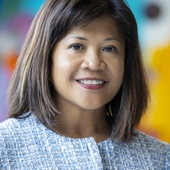
Rose Cuison-Villazor
Professor of Law and Chancellor's Social Justice Scholar, Rutgers University - Newark
Less ![]()

Rose Leke
Professor of Immunology and Parasitology, Faculty of Medicine and Biomedical Sciences, Université de Yaounde 1
Emeritus Professor Rose Gana Fomban Leke is a professor of immunology and parasitology and fellow of the Cameroon Academy of Sciences, the African Academy of Science and The World Academy of Science. Until March 2013, she was head of department at the Faculty of Medicine and Biomedical Sciences, University of Yaounde 1, and Director of the Biotechnology Centre. She served as chair of the board of directors of the National Medical Research Institute and vice-president of the Scientific Committee of Cameroon First Lady’s Research Centre. She was invited as the 2014 Aggrey-Fraser-Guggisberg Memorial Lecturer at the University of Ghana and awarded an honorary DSc.
In 2011, she was one of six women who received the African Union Kwame Nkrumah Scientific Award for Women and received the 2012 award for Excellence in Science from the Cameroon Professional Society. She was elected international honorary fellow of the American Society of Tropical Medicine and Hygiene in 2015. She is a member of the Canada Gairdner Foundation Global Health Award advisory committee.
She was elected one of nine women as Heroine of Health 2018 and celebrated in Geneva on 20 May 2018 in the presence of the director-general of the World Health Organization, the regional director WHO/AFRO, and the Cameroon minister of health.
On November 23, 2018, she was crowned by the Cameroon Medical Council as Queen Mother of the Cameroonian medical community.
She has served as executive director of the Cameroon Coalition against Malaria and chair of the Multilateral Initiative in Malaria Secretariat.
She was president of the Federation of African Immunological Societies and a council member of the International Union of Immunological Societies for two terms.
She has served and still serves as a consultant on many committees for the World Health Organization: the Malaria Policy Advisory Committee, the Malaria Elimination Oversight Committee, the African Regional Commission for the Certification of the Eradication of Poliomyelitis and the Global Certification Commission. She has been a member and chair of the African Advisory Committee for Health Research, a member of the Global ACHR, a board member of the Global Forum for Health Research, and since 2013 serves on the WHO Emergency Committee for Polio Eradication.
Rose has also served as vice-chair of the Technical Evaluation Reference group of the Global Fund to Fight AIDS, Tuberculosis and Malaria and was awarded a Plaque of Honour. She was chair of the DSMB Azithromycin-chloroquine, and was a member of the scientific advisory group for Ebola vaccine trials in Guinea.
Her research has focused on immunology of parasitic infections, particularly malaria. She has a keen interest in global health and health systems strengthening and is very effective in training the next generation of scientists. The HIGHER Women Consortium Cameroon, a mentoring programme, is one of her initiatives.
Less ![]()

Rose Seneviratne
Doctoral Researcher, Mindfulness for Mental Health in Young Adults, University of Southampton
I am a doctoral researcher in the Centre for Innovation in Mental Health at the University of Southampton. My project explores mindfulness and resilience for improved mental health and mental wellbeing in young adult populations. I have trained as a meditation teacher in 2010 and have practiced meditation since childhood. My research interests include mindfulness, maths/stats anxiety, learning, resilience, student wellbeing, behaviour change, mental health (with a specific focus on anxiety, depression, and stress), and mental wellbeing. I am passionate about teaching and sharing knowledge, in both academic and non-academic settings, with a focus on mindfulness, clinical psychology, and research methods/data analysis.
Less ![]()

Rose Vincent
Assistant Professor, Utrecht University
Dr Rose Camille Vincent is a postdoctoral researcher at the Chair of Public Economics of ETH Zürich. Her research focuses primarily on the political-economic and behavioural implications of institutional arrangements regarding taxation and tax policies. She is also invested in collecting and compiling unique datasets using administrative records and archives that define the structure of public sector institutions, especially in developing and emerging economies (see for example TRA dataset).
Aside from her research, Dr Vincent has been involved in various teaching activities, including in public economics, econometrics, impact evaluation methods, and economics and society in contemporary Latin America. She has also been the primary supervisor and co-evaluator of bachelor and master theses at UNU-MERIT/Maastricht University.
Dr Vincent has a proven track record of successful collaboration with research and policy institutions on projects related to public finance and development. She has worked for or consulted to the OECD, the World Bank Group, the GIZ, the Inter-American Development Bank, the WHO, the UNU-WIDER, the International Centre for Tax and Development (IDS/ICTD), and the German Institute for Economic Research (DIW-Berlin), among others. Since 2017, she has been an academic contributor to the World Observatory on Subnational Finance and Investment and has collaborated on the creation of novel databases on sub-national finance (see for example the database on Regional Government Finance and Investment - REGOFI).
Dr Vincent graduated with a dual PhD from Maastricht University (The Netherlands) and Université Clermont-Auvergne (CERDI-CNRS, France). She also holds a MSc in econometrics and statistics from the University of Toulouse (France), a master's in public policy specialising in economic policy from the Hertie School of Governance (Germany), and a bachelor’s degree in economics from the National Taiwan University (Taiwan). She is a native speaker of French and Haitian Creole and is professionally proficient in English, Mandarin Chinese and Spanish.
Less ![]()
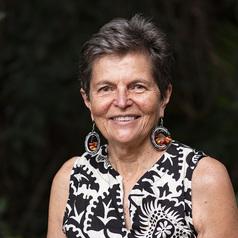
Rosemary Hill
Adjunct Professor, James Cook University
I recently retired from my position as a Senior Principal Research Scientists with CSIRO in the Sustainability Pathways Program and now am an adjunct (honorary) Professor with James Cook University's Cairns Institute. I am an internationally-recognised expert in the science of ecosystem governance and multiple knowledge systems for sustainability, including biodiversity futures, climate change and how indigenous knowledge can inform resilience. I a member of the IUCN Commission on Environment Economic and Social Policy, the World Commission on Protected Areas and Chair of the Gondwana World Heritage Advisory Committee (Qld section).
Less ![]()
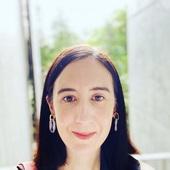
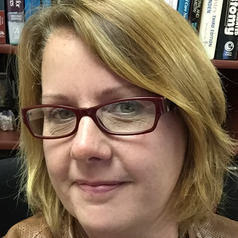
Rosemary Wilson
Associate Director/Associate Professor of Nursing, Queen's University, Ontario
I am a Registered Nurse in the Extended Class/Nurse Practitioner and Associate Professor at Queen's University. My research is focused on pain care and knowledge translation.
My ORCID is https://orcid.org/0000-0003-3262-243X
Less ![]()
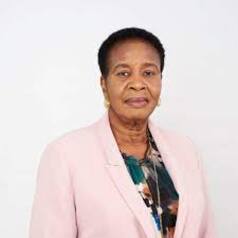
Rosemary Iriowen Egonmwan
Professor of Environmental Physiology of Animals, University of Lagos
Rosemary Iriowen Egonmwan is a professor of environmental physiology of animals in the Department of Zoology, University of Lagos.
She is currently the head of the Natural Resources Conservation Unit in the department. Prof. Egonmwan had her bachelor’s and master’s degrees from the University of Lagos in 1977 and 1981 respectively. She holds a D.Phil. (Zoology) from the University of Oxford, United Kingdom (1988).
As a student, she was a recipient of various scholarships such the Bendel State Best WASC Students’ Academic Scholarship (1972-1974), Academic Merit Award for Best Year 1 student, Faculty of Science, University of Lagos, and Federal Government of Nigeria scholarship (1975-1977), University of Lagos Academic Bursary Award (1978-1980), and Commonwealth Academic Scholar (University of Oxford, 1984-9188). Prof. Egonmwan started her lecturing career in 1982 in the University of Lagos when she was employed as an assistant lecturer in 1982, and rose to the position of a full professor in 2007.
Her current research is on animal ecophysiology, ecotoxicology and conservation.
She has served the university, and the nation, at the state and federal levels, in various capacities. In the department, she has served as course adviser, postgraduate coordinator, acting, and head of the Department of Zoology, and head, Natural Resources Conservation Unit. She has also served at the Faculty level on Member, Appointment and Promotion, and Endowment Committees.
Egonmwan was a board member of Lagos University Teaching Hospital for four years (2012- 2016). In Edo State (where she hails from) she served as the chair of the Committee of Enquiry in the Edo State Polytechnic. At the federal level, she served as a member, Nigeria National Think Tank. During one of her sabbatical years, she worked a senior environmental advisor to Shell. Prof. Egonmwan is a member of many professional bodies such as the Marine Biological Association of Great Britain, Malacological Society of London, Unitas Malacologica, Ecological Society of Nigeria, Science Association of Nigeria, OWSD, Unilag Branch (where she doubles up as a board of governors member), Nigeria Conservation Foundation, among others. She is a Fellow,
Zoological Society of Nigeria and Zoological Society of London.
The services of Prof. Egonmwan in the University of Lagos have spanned for over four decades. She has successfully supervised 10 PhD candidates. She is currently supervising two PhD students.
In March 2023, Prof. Egonmwan was appointed the chairman of the board of Vitafoam Nigeria Plc.
Less ![]()
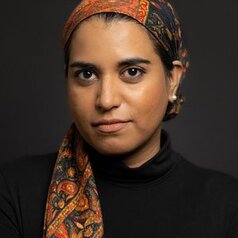
Roshan Arah Jahangeer
Postdoctoral Researcher, Memorial University of Newfoundland
I have a Ph.D. in Political Science from York University, Toronto. I defended my dissertation in 2022 on the topic of "Secularism, Feminism, and Islamophobia: A Study of Anti-Veiling Laws in France and Québec." My research discusses the transnational circulation of the laws banning "religious symbols" in France, how they have circulated to Quebec, Canada, and their impacts on Muslim women across both sites.
I'm currently working as a postdoctoral researcher on the SSHRC-funded project, "La Laïcité dans la Francophonie: Vue du Québec et de l’Ontario," alongside the principal investigators, Amélie Barras (York University) and Jennifer Selby (Memorial University).
I also have several publications that deal with Quebec, France, anti-veiling laws, and Islamophobia, including:
In Press “Good Islam, Bad Islam? Secularism, Separatism and Islamophobia,’” in Islamophobia and/in Post-Secular States. Ed. Sharmin Sadequee. Edmonton: University of Alberta Press.
2021 Fieldworking While Veiled: Autoethnography of a Brown + Muslim + Female Researcher in Québec, in Producing Islam(s) in Canada: On Knowledge Production, Positionality and Politics. Eds. Jennifer Selby, Melanie Adrian and Amélie Barras. Toronto: University of Toronto Press.
2020 Anti-veiling and the Charter of Québec Values: ‘Native Testimonials,’ Erasure, and Violence Against Montreal’s Muslim Women. Canadian Journal of Women and the Law / Revue Femmes et Droit, 32 (1): 114-139. https://doi.org/10.3138/cjwl.32.1.05
Less ![]()
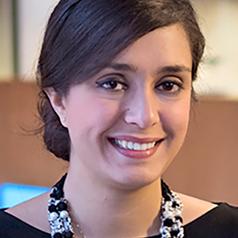
Roshanak Mehdipanah
Associate Professor in Public Health, University of Michigan
Roshanak Mehdipanah is an Associate Professor in the Department of Health Behavior and Health Education in the School of Public Health. Dr. Mehdipanah is the co-lead for the Public Health IDEAS for Creating Healthy and Equitable Cities and the Director of the Housing Solutions For Health Equity initiative. She completed her PhD at the University of Pompeu Fabra, Spain and her M.Sc. from the University of Waterloo, Canada.
Dr. Mehdipanah's research focuses on urban health including urban renewal, gentrification and their impacts on health inequities. She is particularly interested in examining the health impacts of housing policies. She specializes in innovative research methods including realist evaluations and concept mapping to develop conceptual frameworks linking complex interventions to health.
Less ![]()
- Market Data




















